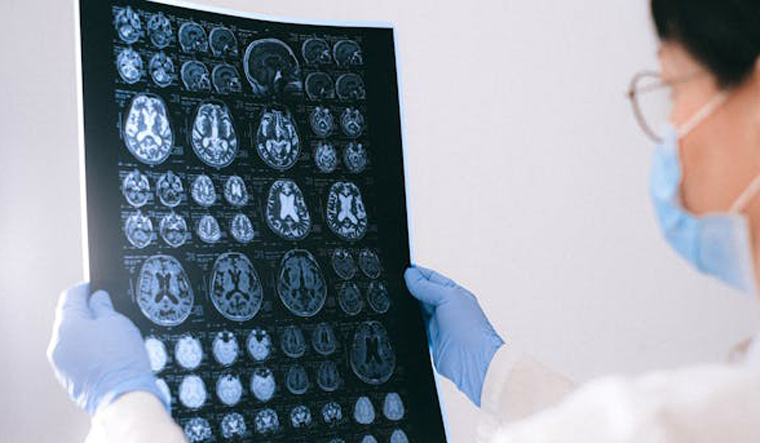The central nervous system (CNS) tumours in India range from 5-10 people per 1,00,000 population. Despite its rarity, the associated morbidity and mortality and the fact that most of the affected are young and middle-aged individuals make it a major cause of concern.
The impact of a brain tumour on a patient's life can be profound. It impedes the body’s normal neurological response to stimuli and translates into sub-optimal cognitive functions and motor skills, emotional imbalances, and poor quality of life.
June 8 is observed as the World Brain Tumour Day to create awareness about tumours.
Interview: Dr Gaurish Kenkre, General Manager and Center Head, Atharv Ability – Neuro Rehabilitation Centre, Mumbai
Q: What is neurological rehabilitation?
This is a specialised therapeutic process aimed at aiding recovery and enhancing the functional capabilities of individuals with neurological impairments. For patients with brain tumours, neuro-rehabilitation is tailored to address specific deficits caused by the tumour or its treatment, such as surgery, radiation, or chemotherapy. The main goal is to help patients regain independence and improve their quality of life.
Q: What are the different kinds of techniques used under a comprehensive rehabilitation protocol?
1. Physical Therapy (PT): It focuses on improving strength, balance, coordination, and mobility. For brain tumour patients, PT can help regain muscle function, reduce fatigue, and improve overall physical endurance. Techniques include exercises, gait training, and the use of assistive devices.
2. Occupational Therapy (OT): It aims to help patients perform daily activities independently. OT involves training in self-care skills, home management, and adapting the home environment to meet the patient’s needs. This therapy also includes cognitive rehabilitation to improve memory, attention, and problem-solving skills.
3. Speech and language therapy: It addresses communication disorders and swallowing difficulties that may arise due to brain tumours. This therapy helps patients improve their speech clarity, language skills, and cognitive communication abilities, enhancing their ability to interact socially and effectively.
4. Cognitive Rehabilitation Therapy: This therapy focuses on restoring cognitive functions such as attention, memory, executive function, and problem-solving. Techniques deployed include exercises, computer-based cognitive training, and compensatory strategies to manage cognitive deficits.
5. Psychological Counseling: It helps patients cope with the emotional and psychological challenges of living with a brain tumour. Counselling sessions can address anxiety, depression, and adjustment disorders, promoting mental well-being and resilience.
Q: What are the visible changes post the different kinds of therapy?
These therapies help in improved physical function with regained strength, coordination, and mobility, enabling patients to perform daily activities more efficiently and independently. This improvement reduces the risk of falls and other complications, contributing to a safer living environment.
With enhanced cognitive abilities rehabilitation therapies that target cognitive functions, patients regain skills such as memory, attention, and problem-solving, which are essential for daily living and professional activities. Improved cognitive abilities also foster better social interactions and personal relationships. Also, speech and language therapy helps patients overcome speech and language barriers, improving their ability to communicate effectively. This enhancement facilitates better social integration and reduces feelings of isolation.
Q: Why is psychological counselling important?
Psychological counselling and social support are vital in addressing the emotional impact of a brain tumour diagnosis. Patients who receive consistent psychological support often experience reduced levels of anxiety and depression, leading to an overall improvement in mental health and quality of life.
Q: How does the overall quality of life improve?
By improving physical, cognitive, and emotional functions, neuro-rehabilitation empowers patients to be more independent in their daily lives. This autonomy is crucial for their self-esteem and overall sense of well-being. The ultimate aim is to improve the overall quality of life for brain tumour patients. By addressing the multifaceted challenges posed by brain tumours, these therapies help patients lead more fulfilling and productive lives, despite their medical condition.
Neuro-rehabilitation is a comprehensive approach that addresses the diverse needs of brain tumour patients. By enhancing physical, cognitive, and emotional functions, rehabilitation significantly improves the quality of life, helping patients navigate the challenges posed by their condition and achieve a better sense of normalcy and well-being.



